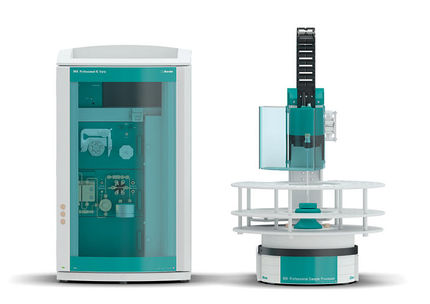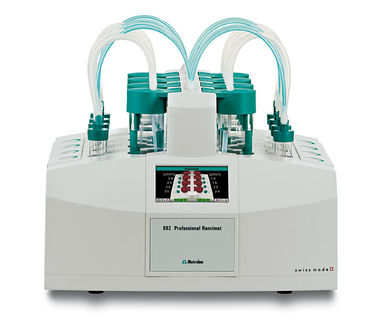To use all functions of this page, please activate cookies in your browser.
my.chemeurope.com
With an accout for my.chemeurope.com you can always see everything at a glance – and you can configure your own website and individual newsletter.
- My watch list
- My saved searches
- My saved topics
- My newsletter
Polydispersity indexIn organic chemistry, the polydispersity index (PDI), is a measure of the distribution of molecular mass in a given polymer sample. The PDI calculated is the weight average molecular weight divided by the number average molecular weight. It indicates the distribution of individual molecular masses in a batch of polymers. The PDI has a value always greater than 1, but as the polymer chains approach uniform chain length, the PDI approaches unity (1). The PDI from polymerization is often denoted as: Product highlight
A polymer material is denoted by the term polydisperse if its chain lengths vary over a wide range of molecular masses; this is characteristic of man-made polymers.[1] Effect of Polymerization Mechanism on PDITypical PDI's vary based on the mechanism of polymerization and can be affected by a variety of reaction conditions. In synthetic polymers, it can vary greatly due to reactant ratio, how close the polymerization went to completion, etc. For typical addition polymerization, values of the PDI can range around 10 to 20. For typical step polymerization, most probable values of the PDI are around 2 —Carothers' equation limits PDI to values of 2 and below. Living polymerization, a special case of addition polymerization, leads to values very close to 1. Such is the case also in biological polymers, where the PDI can be very close or equal to 1, indicating only one length of polymer is present. Methods to Determine the PolydispersityGel Permeation Chromatography or Size exclusion chromatography See also |
| This article is licensed under the GNU Free Documentation License. It uses material from the Wikipedia article "Polydispersity_index". A list of authors is available in Wikipedia. |








